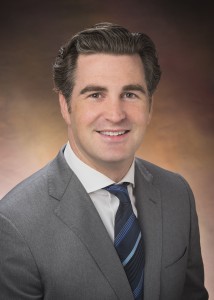Joseph Lillegard, MD PhD
Clinic Locations:
Board Certifications:
- Surgery
- Pediatric Surgery
Education and Training:
- Medical School: University of Nevada School of Medicine
- PhD: University of Nevada School of Medicine
- Internship: Mayo Medical Center
- Research Fellowship: Mayo Medical Center
- Fellowship: Clinician-Investigator Training Program at Mayo Medical Center
- Fellowship of Pediatric Surgery: Children’s Hospital of Philadelphia
Memberships:
- American College of Surgeons, Student and Resident Member, 6/2005-present
- American Medical Association, Student and Resident Member, 6/2005-present
- Reviewer for Surgery 2009
- Member of the Surgical Research Committee 6/2009-Present
- Invited Reviewer for Annals of Transplantation 2010
Professional Interests:
- Treatment of pediatric-related liver diseases and inborn errors of metabolism found in the liver
- Pediatric General and Thoracic Surgery
- Minimally invasive laparoscopic and thoracoscopic surgery
- Neonatal congenital anomalies
- Congenital diaphragmatic hernia repair
- Childhood malignancies
- Thyroid and parathyroid disease
- Anal rectal malformation repair
- Repair of chest wall deformities (pectus excavatum and carnatum)
Publications:
- Ex Vivo Hepatocyte Reprograming Promotes Homology-Directed DNA Repair to Correct Metabolic Disease in Mice After Transplantation.
- Hepatotoxicity and Toxicology of In Vivo Lentiviral Vector Administration in Healthy and Liver-Injury Mouse Models.
- A dynamic discrimination model for predicting respiratory distress at birth based on the mass volume ratio in fetuses with congenital lung malformations.
- Autologous Gene and Cell Therapy Provides Safe and Long-Term Curative Therapy in A Large Pig Model of Hereditary Tyrosinemia Type 1.
- Lentiviral Vector-mediated Gene Therapy of Hepatocytes Ex Vivo for Autologous Transplantation in Swine.
- Hepatocyte spheroids as an alternative to single cells for transplantation after ex vivo gene therapy in mice and pig models.
- Curative Ex Vivo Hepatocyte-Directed Gene Editing in a Mouse Model of Hereditary Tyrosinemia Type 1.
- Chronic Phenotype Characterization of a Large-Animal Model of Hereditary Tyrosinemia Type 1.
- Curative ex vivo liver-directed gene therapy in a pig model of hereditary tyrosinemia type 1.
- Fumarylacetoacetate hydrolase deficient pigs are a novel large animal model of metabolic liver disease.
- Autologous blood patch for persistent air leak in children.
- Hernia of cecum and ascending colon through the foramen of Winslow.
- In utero transplanted human hepatocytes allow postnatal engraftment of human hepatocytes in pigs.
- Serum-free medium and mesenchymal stromal cells enhance functionality and stabilize integrity of rat hepatocyte spheroids.
- Role of Kupffer cells and toll-like receptor 4 in acetaminophen-induced acute liver failure.
- Cell therapies for liver diseases.
- Efficient production of Fah-null heterozygote pigs by chimeric adeno-associated virus-mediated gene knockout and somatic cell nuclear transfer.
- Hepatic resection for the carcinoid syndrome in patients with severe carcinoid heart disease: does valve replacement permit safe hepatic resection?
- Normal atmospheric oxygen tension and the use of antioxidants improve hepatocyte spheroid viability and function.
- Ephedra-Induced Gastric Mucosal Injury.
- Pyogenic liver abscess secondary to Streptococcus anginosus in an adolescent.
- Aldosteronomas–state of the art.
- Optimization of mass transfer for toxin removal and immunoprotection of hepatocytes in a bioartificial liver.
- Artificial and bioartificial liver support.
- Recognition of Candida albicans by mannan-binding lectin in vitro and in vivo.
